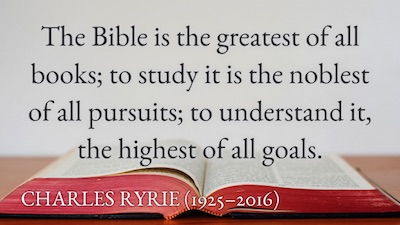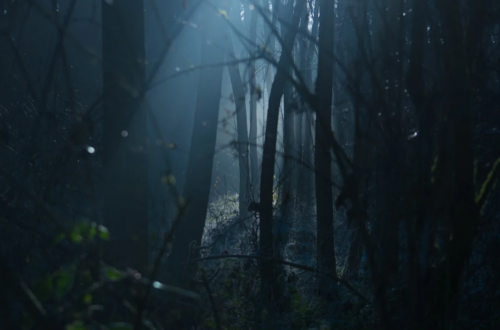
Thank you, Dr. Ryrie
He was aging and death came and it came as a shock. Many have written tributes and have expressed deep sorrow. Like them, his death has moved me deeply. I have used the Ryrie Study Bible almost all my Christian life and without me realizing it, Ryrie’s work has meant more to me than I knew. It meant more. A lot more.
Ryrie wrote notes on Scripture and explained doctrines so people could comprehend difficult doctrines, so they too could discover a deeper relationship with God. Why did he do this?
Without his work, without the interpretations and explanations, I may have never wanted to learn more. I needed his work to spur me towards spiritual growth. After all, I had doubts.
Okay, time to study, I wrote one day in my journal. As a fifteen-year-old, I had no clue what studying God’s Word meant. I knew my thinking then involved desperation. I needed guidance. I had never felt so lost reading God’s Word.
So I’m thankful my despair forced me to open my new Ryrie Study Bible given to me by a seminary student—my Sunday school teacher at my church. More questions ensued, more research, more digging deeper. And soon I discovered a love for the Scriptures. Studying quenched a deep thirst I didn’t know existed.
I know little about Ryrie’s life. He trusted the Lord at the age of five. Went to school, graduated as valedictorian from Alton High School. Gifted in playing the piano, in academics, in studying God’s Word. I know he had life problems and sufferings like every one else—like me.
So what led to his work on the Ryrie Study Bible? Once interviewed he explained,
"It started one year on the way to my first Christian Booksellers Association meeting in Cincinnati. On the bus going in, a publisher who had published a book of mine said, “I want to talk to you.” He wanted me to edit a multi-author volume of some sort, I don’t remember now, a dictionary or something. I said, “No, thank you! I am no good at riding herd on a hundred authors, making deadlines, and all that.” So in return he said, “Propose something to me.” I thought about that a while. There weren’t many study Bibles available then. The Scofield Bible had just been revised. The Pilgrim Bible was good, and used. There was a Lutheran New Testament Study Bible, and the Open Bible was maybe out by then. . . . I’m not sure of the dates. So I told him, “I think evangelicals need another study Bible. Not like the Scofield—there’s nothing wrong with it—but more interpretive.” I tried to write something with exegetically standard notes. I would say that the Scofield notes are more thematic, a synthesis of things. (I like the Scofield, that is not a criticism, believe me.) So I proposed this to him, and he agreed.
So we agreed on a New Testament. That’s all they wanted to take a chance at. But by the time I finished my part, that publisher had been sold to a larger conglomerate. The man came back to me and said, “I don’t think we’ll be able to publish your Bible for years, because we’ve got so much going with this merger. So you have the right to do whatever you want with it.”
And ultimately I went with Moody. One reason was that at that point, Moody was pretty sure they could get rights to the New American Standard, which had just come out. (I had written the notes using the King James.) But they did get the New American, so the notes were adapted to that, and later to other translations as well. That’s how it came to be.”
So today I’m thankful for that moment in the bus. When someone challenged him to "think for a while," and something wonderful happened—he went to work. He wrote his interpretations, his research. He shared his notes on Scripture.
And now he has left us. He’s with Jesus. Some of us who knew him will replay memories of him and will share with each other the mark he left in our hearts. It’s not hard to imagine him in heaven asking Jesus for answers to the questions he still had.
I still have my old Ryrie Study Bible, and will depend on it for the rest of my life. At times, without me realizing it, Ryrie’s work will continue to influence my writings, my work and my life. It means more to me now than it has before. It means more. A lot more.
Thank you, Dr. Ryrie.
*Excerpt from Baptist Bulletin and image courtesy of Logos Talk


